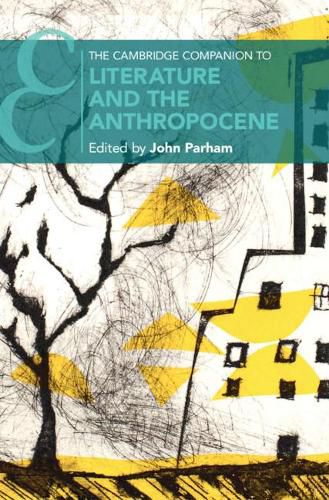Readings Newsletter
Become a Readings Member to make your shopping experience even easier.
Sign in or sign up for free!
You’re not far away from qualifying for FREE standard shipping within Australia
You’ve qualified for FREE standard shipping within Australia
The cart is loading…






The Anthropocene is a proposed geological epoch marking humanity’s alteration of the Earth: its rock structure, environments, atmosphere. The Cambridge Companion to Literature and the Anthropocene offers the most comprehensive survey yet of how literature can address the social, cultural, and philosophical questions posed by the Anthropocene. This volume addresses the old and new literary forms - from novels, plays, poetry, and essays to exciting and evolving genres such as ‘cli-fi’, experimental poetry, interspecies design, gaming, weird, ecotopian and petro-fiction, and ‘new’ nature writing. Studies range from the United States to India, from Palestine to Scotland, while addressing numerous global signifiers or consequences of the Anthropocene: catastrophe, extinction, ‘fossil capital’, warming, politics, ethics, interspecies relations, deep time, and Earth. This unique Companion offers a compelling account of how to read literature through the Anthropocene and of how literature might yet help us imagine a better world.
$9.00 standard shipping within Australia
FREE standard shipping within Australia for orders over $100.00
Express & International shipping calculated at checkout
The Anthropocene is a proposed geological epoch marking humanity’s alteration of the Earth: its rock structure, environments, atmosphere. The Cambridge Companion to Literature and the Anthropocene offers the most comprehensive survey yet of how literature can address the social, cultural, and philosophical questions posed by the Anthropocene. This volume addresses the old and new literary forms - from novels, plays, poetry, and essays to exciting and evolving genres such as ‘cli-fi’, experimental poetry, interspecies design, gaming, weird, ecotopian and petro-fiction, and ‘new’ nature writing. Studies range from the United States to India, from Palestine to Scotland, while addressing numerous global signifiers or consequences of the Anthropocene: catastrophe, extinction, ‘fossil capital’, warming, politics, ethics, interspecies relations, deep time, and Earth. This unique Companion offers a compelling account of how to read literature through the Anthropocene and of how literature might yet help us imagine a better world.